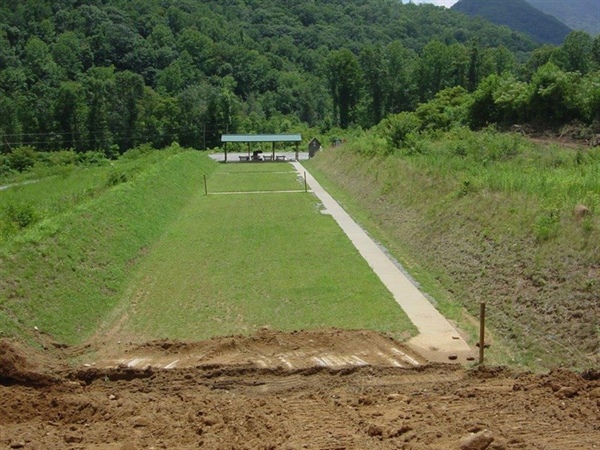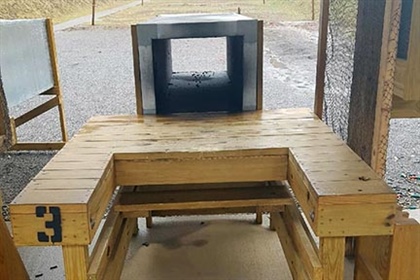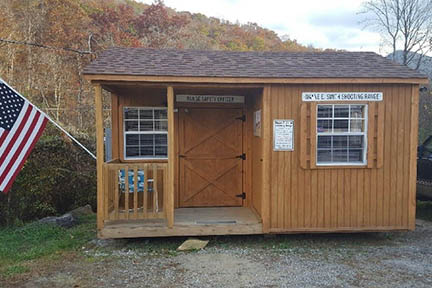The North Carolina Wildlife Resources Commission in conjunction with the National Wild Turkey Federation will be offering free turkey hunting seminars across the state in March. It is intended for both beginners and advanced hunters in advance of the spring turkey season.
As an aside, have you ever noticed how many turkeys you see within urban areas and in the city limits when turkey season starts?
RALEIGH, N.C. (Jan. 30, 2017) — The N.C. Wildlife Resources Commission, along with the National Wild Turkey Federation, is offering 14 free turkey hunting seminars across the state in March.
The seminars, which will be held from 6 to 9 p.m., are open on a first-come, first-serve basis to all ages and skill levels, although participants 16 years and younger will need parental permission to register. Pre-registration is required and participants must register online.
Among the topics that will be covered during the seminars are biology, hunting methods, calls and decoys, firearms and ammo tips, camouflage clothing, and turkey processing and cooking techniques. A question-and-answer session, along with a brief overview of hunter recruitment, retention and re-activation (R3) initiatives, will conclude each seminar.
Dates and locations are:
March 1
Pitt County Extension Center, Pitt County
403 Government Circle, Suite 2, Greenville, NC 27834
GPS Coordinates: (35.638284, -77.360689)
March 2
N.C. State University Engineering Building II (EBII), Wake County
Classroom 1025
3114 Engineering Building II
890 Oval Drive, Raleigh, NC 27606
GPS coordinates: (35.772173, -78.674353)
March 7
Pasquotank County Extension Center, Pasquotank County
1209 McPherson Street, Elizabeth City, NC 27909
GPS Coordinates: (36.298477, -76.235738)
March 8
Onslow County Extension Center, Onslow County
4024 Richlands Hwy., Jacksonville, NC 28540
GPS Coordinates: (34.781641, -77.494023)
March 9
Craven County Extension Center, Craven County
300 Industrial Drive, New Bern, NC 28562
GPS Coordinates: (35.142969, -77.158907)
March 14
Mountain Horticulture Crops Research and Extension Center, Buncombe County
455 Research Drive, Mills River, NC 28759
GPS Coordinates: (35.424879, -82.560748)
March 15
Cumberland County Extension Center, Cumberland County
301 East Mountain Drive, Fayetteville, NC 28306
GPS Coordinates: (35.012639, -78.893928)
March 16
Bass Pro Shops, Cabarrus County
8181 Concord Mills Blvd., Concord, NC 28027
GPS Coordinates: (35.367147, -80.718964)
March 21
Brunswick County Extension Center, BLDG. N, Brunswick County
25 Referendum Drive, Bolivia, NC 28422
GPS Coordinates: (34.056713, -78.165797)
March 22
Haywood Community College, Haywood County
185 Freedlander Drive, Clyde, NC 28721
GPS Coordinates: (35.525949, -82.927936)
March 23
Caldwell County Extension Center, Caldwell County
120 Hospital Avenue NE/Suite 1, Lenoir NC 28645
GPS Coordinates: (35.922477, -81.523500)
March 28
Catawba County Extension Center, Catawba County
1175 South Brady Avenue, Newton NC 28658
GPS Coordinates: (35.647028, -81.223360)
March 29
Forsyth County Extension Center, Forsyth County
1450 Fairchild Road, Winston-Salem, NC 27105
GPS Coordinates: (36.128816, -80.225864)
March 30
Guilford County Extension Center, Guilford County
3309 Burlington Road, Greensboro, NC 27405
GPS coordinates: (36.084624, -79.738867)
“This is the third year the Wildlife Commission and the National Wild Turkey Federation have offered these expanded, statewide seminars prior to the start of the spring gobbler season and they have been very popular with both novice and experienced turkey hunters,” said Walter “Deet” James, the Wildlife Commission’s hunting heritage biologist. “New for 2017, we have combined both introduction and advanced segments into one seminar thereby eliminating redundancy and the need to attend multiple seminars. In short, we will continue to improve the cooperative seminar series based on conservation partner and attendee feedback.”
The statewide season for male or bearded turkey only is April 8 through May 6, with a youth-only week from April 1-7. Regulations and restrictions on turkey hunting, including information on youth season, are available in the 2016-17 Inland Fishing, Hunting and Trapping Regulations Digest.
For additional information, contact James at 919-707-0059; mobile, 984-202-1387 or hunting.heritage@ncwildlife.org.
Visit www.ncwildlife.org/hunting and click on the “What to Hunt” link for information about wild turkeys in North Carolina.



